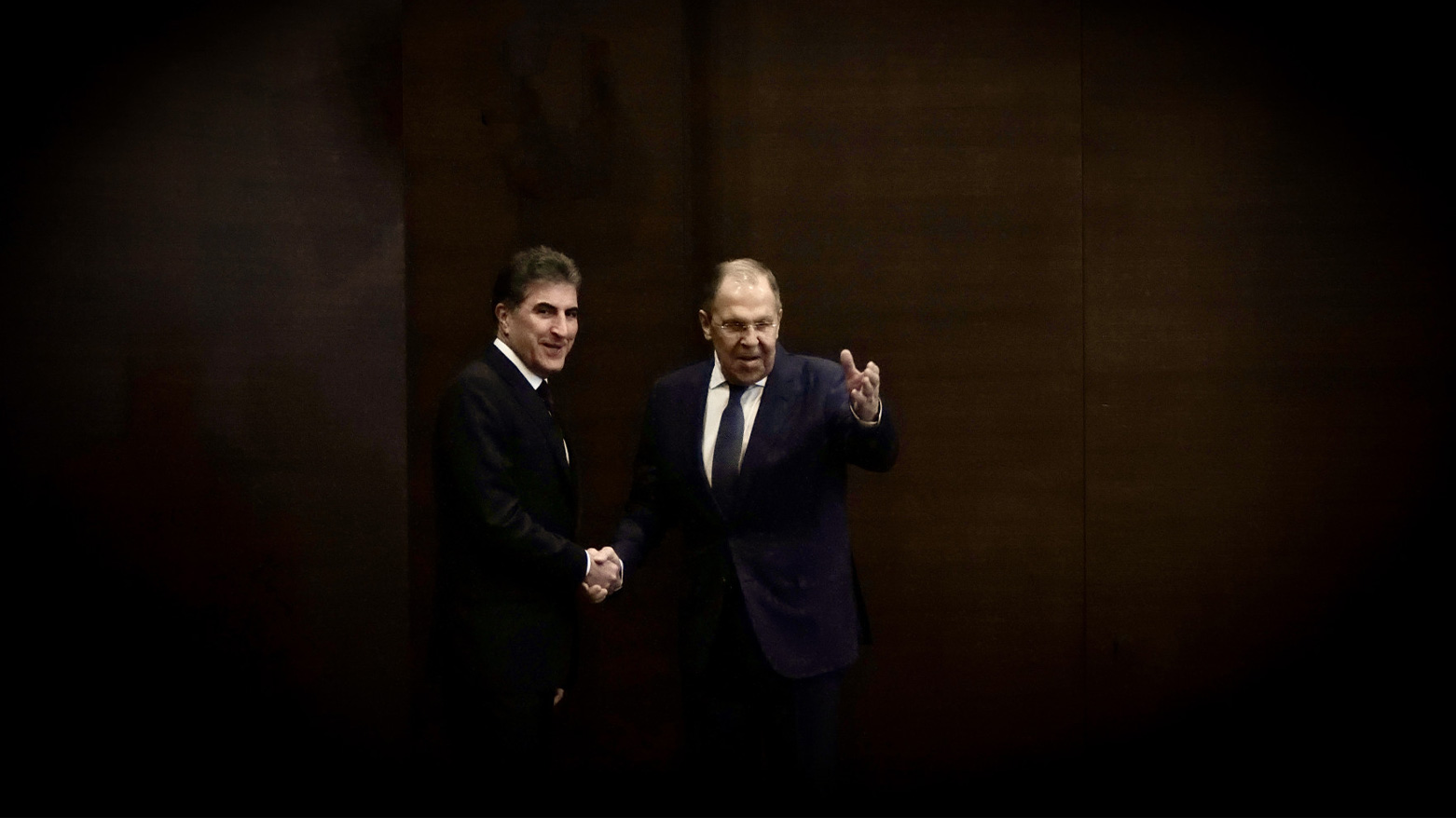Kurdistan Region's President Meets Russian FM at Antalya Diplomacy Forum
During their conversation, Barzani and Lavrov exchanged views on a wide range of issues, focusing heavily on the state of Russian-Iraqi relations and Russia’s engagement with the Kurdistan Region.

By Kamaran Aziz
ERBIL (Kurdistan24) – In a high-profile diplomatic encounter amid mounting geopolitical realignments, Kurdistan Region President Nechirvan Barzani met with Russian Foreign Minister Sergey Lavrov on Saturday, on the sidelines of the Antalya Diplomacy Forum. The meeting marked a significant reaffirmation of Erbil’s intent to deepen bilateral cooperation with Moscow, particularly in the economic and political arenas.
According to a statement from the Kurdistan Region Presidency, the talks formed part of President Barzani’s broader diplomatic agenda at the international forum, which gathered global leaders and foreign ministers to discuss pressing regional and international challenges. The meeting with Russia's Foreign Minister Sergey Lavrov underscores the Kurdistan Region’s growing engagement with global powers and its ambition to position itself as a constructive regional actor.
During their conversation, Barzani and Lavrov exchanged views on a wide range of issues, focusing heavily on the state of Russian-Iraqi relations and Russia’s engagement with the Kurdistan Region. Both sides emphasized the importance of strengthening economic ties, particularly in energy and infrastructure, sectors where Russian investment and expertise continue to play a role in the Region’s development.
It was a good opportunity to meet with Foreign Minister Sergey Lavrov today in Antalya. We discussed regional developments and the state of cooperation between the Kurdistan Region, Iraq, and Russia. pic.twitter.com/oEOiBurF1v
— Nechirvan Barzani (@IKRPresident) April 12, 2025
The two leaders also discussed recent political and security developments in Iraq and the broader Middle East. With the regional order in flux following ongoing conflicts in Ukraine, Gaza, and renewed tensions surrounding Iran’s nuclear program, the meeting highlighted mutual concerns over stability and the prospects for collaborative diplomacy.
Lavrov and Barzani further addressed the state of Erbil-Baghdad relations, emphasizing the importance of constitutional dialogue and mutual understanding in resolving outstanding disputes. The lingering crises in Syria and their spillover effects on neighboring states, particularly in terms of refugee flows, extremist threats, and Kurdish self-governance issues, were also raised.
The Antalya meeting was seen by diplomatic observers as a clear signal of the Kurdistan Region’s multidirectional foreign policy, balancing strong ties with the United States and Europe while actively cultivating pragmatic relations with powers like Russia.
While Russia’s broader relations with Iraq have fluctuated amid shifting global alignments, Erbil continues to advocate for open dialogue and economic partnerships that transcend regional divisions. Lavrov’s presence and willingness to engage with Kurdish leadership reflects Moscow’s ongoing interest in maintaining a foothold in northern Iraq amid broader competition for influence across the Middle East.
As the Antalya Diplomacy Forum progresses, President Barzani’s participation—and his engagements with global counterparts like Lavrov—highlight the Kurdistan Region’s strategic priority of asserting its role as a stabilizing partner and economic gateway in a region marked by uncertainty and transformation.